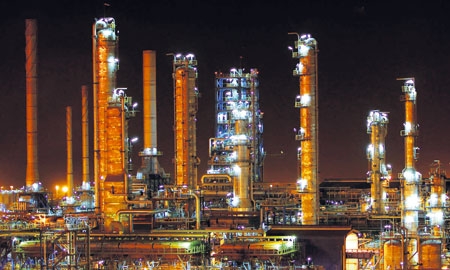
With Pakistan having now achieved the landmark of its first true democratic transition, the national priority is economic development. As Tariq Rizavi, Managing Director of Pak Arab Refinery Ltd (PARCO), states: “We are facing a shortage of energy, which drives everything; without energy there is no industrial development.” Reliable, ample energy supplies are, of course, essential to create a virtuous cycle of jobs and investment and to counter the economic stagnation that can become a seedbed for social unrest.
Companies in Pakistan’s downstream sector are rising to the nation’s energy challenge. As they work to expand production capacity and reduce reliance on imports, entities such as PARCO and the Pakistan State Oil Company (PSO) are widening their capabilities through new investments and the acquisition of previously foreign-owned activities, as well as through partnerships with independent or foreign technology providers.
Strengthening national capacity through technology transfer and through partnerships with overseas technology providers has been a continuous theme in the development of PARCO, a 60:40 joint venture between the Government of Pakistan and the Abu Dhabi Petroleum Investment Company. Last year it partnered with Total of France in a successful acquisition of Chevron’s retail network in Pakistan, comprising some 500 petrol stations. It also has a technology agreement with UOP in Guildford, a technological support venture with OMV from Austria, and has purchased LPG facilities from the Dutch SHV.
The sector’s openness to partnering with foreign companies is also evidenced by PSO’s agreements with Air Total of France, as well as its ventures with investors from Kuwait, Singapore and the US.
Pakistan State Oil: driving the economy
PSO is one of the most important strategic assets of the Pakistani economy. As the country’s largest company (in terms of turnover), PSO leads the oil marketing sector, both in black oil and white oil, with an overall market share of over 63 per cent. It serves around 3 million customers every day across the entire economic value chain with over 3,500 retail outlets, and controls 74 per cent of the country’s oil storage capacity. It is involved in import, storage, distribution and marketing of a range of petroleum products including gasoline, diesel, fuel oil, jet fuel, LPG, CNG and petrochemicals.
The competitive landscape of oil marketing in Pakistan – an increasingly dynamic economy – is rapidly evolving with increased growth. In the past Shell and Caltex were the only competitors of PSO. At present, PSO competes with 12 market players. PSO’s Managing Director and CEO, Amjad Parvez Janjua, seems cognizant of the competitive challenges as he leads the corporate development and transformation of PSO into an “entrepreneurial enterprise capable of meeting customer demands and expectations, while supporting the government’s energy sector programmes and playing the role of a responsible corporate citizen.”
“We cannot afford to be complacent. We strive to improve our value proposition for customers and investors to establish our market leadership on a sustainable basis,” said Mr Janjua as PSO commemorated its highest ever semi-annual profitability. Since Mr Janjua took over as CEO in July 2013, the company’s market capitalisation has increased from PKR 98 billion (£595.4 million) to PKR 117 billion.
Elaborating on PSO’s responsible role, the company’s Head of Corporate Communications highlighted the company’s commitment towards a wide range of stakeholders. “As a responsible corporate citizen, we are committed to the fulfilment of our responsibility towards internal and external stakeholders. Ensuring health and safety of PSO employees and all those likely to be affected by the company’s operations, observing the highest standards of security, and supporting deprived segments of society are high on our corporate agenda. The company realises that in addition to being directly accountable to shareholders, it is responsible to a wide group of stakeholders for supporting sustainable development and expanding economic opportunity,” she stated.
PARCO grows powerfully
The wider use of cleaner motor fuel is a government as well as industry objective. PSO was a pioneer in the supply of compressed natural gas while PARCO has taken the lead in introducing into the market lead-free fuel compliant to EURO II standards. With its investment of $132 million in its diesel hydro desulphurisation plant, high-speed diesel fuel is now produced at PARCO’s Mid-Country Refinery, an important step towards a greener environment.
Following years of ongoing reinvestment, PARCO, for its part, has become a fully integrated energy company. It has grown from a small pipeline company in 1975 to the country’s strategic fuel supplier today, with a refining capacity of 100,000 barrels per day (bpd) and storage capacity of over 1 million metric tonnes, besides a national pipeline network now spanning 2,000 kilometres.
Today, PARCO is planning the country’s largest refinery at Khalifa and hopes to further widen its activities by including an independent power plant in the scheme, with surplus power produced being sold into the national grid.
Having public finances now in order, the government is able to pursue clear and well-defined national objectives to foster economic growth and social development, and generate employment opportunities. A dynamic energy supply sector is very clearly key to achieving the country’s ambitions. The investments realised and those planned by both PARCO and PSO, among others, show their determination to meet the challenges ahead.
0 COMMENTS